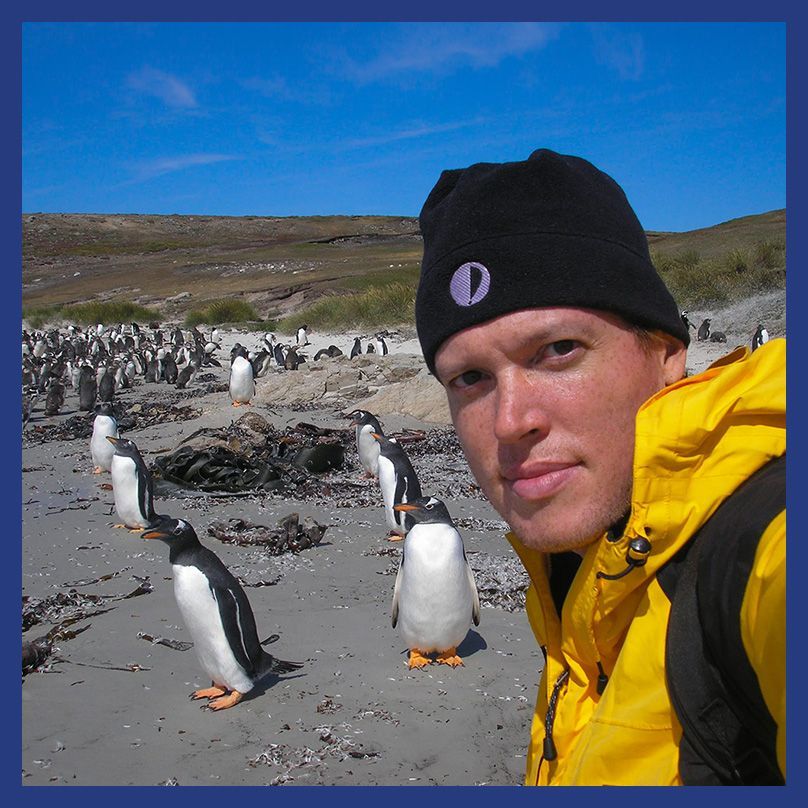As destination marketers and travel enthusiasts, we have embraced travel writer and author Rolf Potts as a compass for our nation’s growing wanderlust.
Rolf Potts has reported from more than sixty countries for National Geographic Traveler, The New Yorker, Slate.com, Outside, The New York Times Magazine, and the Travel Channel, among others. His podcast, Deviate, has been recommended by such venues as The New York Times and Washington Post for its counterintuitive travel conversations.
Potts is perhaps best known for promoting the ethic of independent travel, and his newest book, The Vagabond’s Way: 366 Meditations on Wanderlust, Discovery, and the Art of Travel, was published in October of 2022. His bestselling debut book, Vagabonding: An Uncommon Guide to the Art of Long-Term World Travel, has been through thirty-seven printings and translated into several languages worldwide. That book continues to gain acclaim, with two surprise appearances (even to the author) in the last two seasons of Billions. In the latest, one of the financier characters, inspired by the teachings of the book, takes off backpacking to Morocco and the Middle East.
We recently caught up with Potts to chat about travel vs. tourism and the serendipity of travel.
Paradise: You write about the distinction between travelers and tourists – “travelers are the ones who ‘truly’ see their surroundings, whereas tourists just superficially ‘look’ at their attractions. Is it possible to become travelers in everyday life or on shorter trips than it would otherwise take to become a vagabond?
Potts: Well, I ultimately try to downplay the “travelers-versus-tourists” dichotomy, since we all end up being a combination of both on the road. Obsessing on the distinction can turn into something of a parlor game rather than an honest inquiry. That being said, I think that travel, at its best, allows us to slow down and really pay attention to the new places and people we encounter as we go. I think we often over-plan our travels and rush through our experiences without leaving ourselves open to serendipity – and serendipity is one of the greatest gifts of travel.
So being a “traveler” on shorter trips – or in everyday life – is often just a matter of slowing down and paying attention. Of making the most of a moment, and savoring our experiences, no matter where we are.
Paradise: Is it possible to go vagabonding closer to home, despite familiarity with surroundings? In other words, is it possible to discover the “uncommon beauty” of everyday domestically, rather than abroad?
Potts: Absolutely. Travel is a great metaphor for how you can live your life at home – taking the curiosity and excitement of being in a new place, and focusing that kind of attention on places that feel familiar. It’s all too easy, when at home, to get caught into habits and routines, and stop appreciating the simple pleasures and surprises that surround us. Breaking out of these home routines can be as simple as going for an hour-long walk, taking a new route home from work, or waking up early to watch the sunrise.
Paradise: What advice would you give to tourism bureaus to encourage vagabonding, or at least offer experiences for the long-term traveler, rather than the standard itineraries otherwise expected?
Potts: Long-term travelers are a boon to local tourism economies, since – by having the time to take things slow – they are more likely to linger in a place. I often say that it’s more rewarding to stay in one place for a week than to rush through seven places in seven days – and this is a mindset that tourism bureaus can encourage. Not just by listing attractions, but by suggesting that the best aspects of a place are its surprises. Often this means getting travelers out of their cars, out of their hotels, and encouraging them to explore a place on foot.
Paradise: What advice would you give employers, so that they embrace sabbatical travel?
Potts: Being open to sabbatical travel can put the workplace into conversation with a more balanced way of living. It shows that employers don’t just care about productivity – they care about the holistic wellbeing of the people that work for them. And, as it happens, happy workplaces ultimately wind up being productive ones.
Paradise: What do you see as the future of travel, in light of a fast advancing digital age that often requires instant gratification? How do we keep things real in the age of AI?
Potts: I think travel, when embraced with intention and awareness (rather than a “consumer” mindset), is one of the best ways to seek organic life experiences. It’s one thing to cull a list of travel recommendations from AI, or to look at carefully filtered photos of the world’s wonders through your phone or laptop screen. It’s another thing altogether to show up in person, set aside your screens – and your expectations – and smell, taste, hear, and feel those places in their vivid, real-time splendor.





